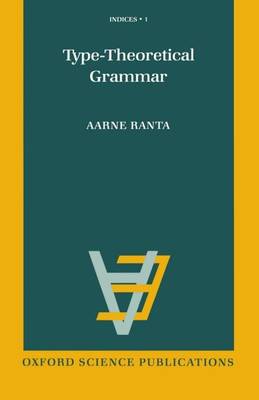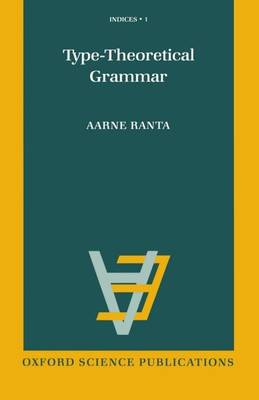
Je cadeautjes zeker op tijd in huis hebben voor de feestdagen? Kom langs in onze winkels en vind het perfecte geschenk!
- Afhalen na 1 uur in een winkel met voorraad
- Gratis thuislevering in België vanaf € 30
- Ruim aanbod met 7 miljoen producten
Je cadeautjes zeker op tijd in huis hebben voor de feestdagen? Kom langs in onze winkels en vind het perfecte geschenk!
- Afhalen na 1 uur in een winkel met voorraad
- Gratis thuislevering in België vanaf € 30
- Ruim aanbod met 7 miljoen producten
Zoeken
Omschrijving
Constructive type theory was first presented in 1970 by Swedish logician Per Martin-Lof. Since then, it has become one of the main approaches in the foundations of mathematics and computer science. However, although it provides a considerable extension of the concepts and techniques of logic, it remains relatively unknown among linguists and philosophers. This work presents constructive type theory from the point of view of linguistics and the philosophy of language, introducing its valuable approach to those in areas in which it has remained unfamiliar. The theory is then applied to quantification, anaphora, temporal reference, and the structures of text and discourse. Various phenomena of dependence and progression are discussed in the light of concepts of proof object and content, and the solutions to several well-known problems are discussed.
Specificaties
Betrokkenen
- Auteur(s):
- Uitgeverij:
Inhoud
- Aantal bladzijden:
- 238
- Taal:
- Engels
- Reeks:
- Reeksnummer:
- nr. 1
Eigenschappen
- Productcode (EAN):
- 9780198538578
- Verschijningsdatum:
- 23/03/1995
- Uitvoering:
- Hardcover
- Formaat:
- Genaaid
- Afmetingen:
- 152 mm x 229 mm
- Gewicht:
- 526 g

Alleen bij Standaard Boekhandel
+ 370 punten op je klantenkaart van Standaard Boekhandel
Beoordelingen
We publiceren alleen reviews die voldoen aan de voorwaarden voor reviews. Bekijk onze voorwaarden voor reviews.









